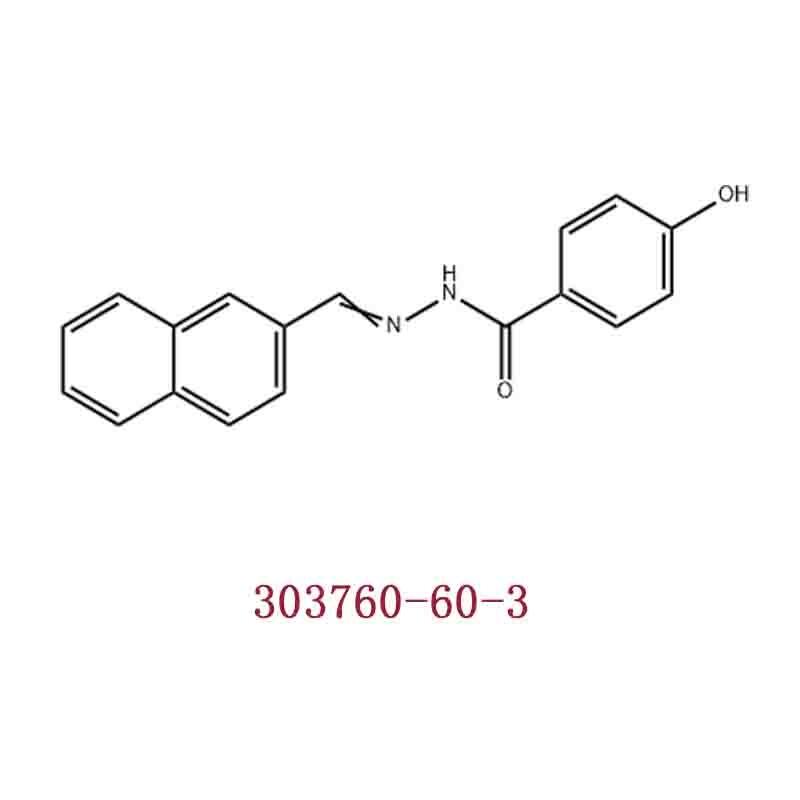-
Categories
-
Pharmaceutical Intermediates
-
Active Pharmaceutical Ingredients
-
Food Additives
- Industrial Coatings
- Agrochemicals
- Dyes and Pigments
- Surfactant
- Flavors and Fragrances
- Chemical Reagents
- Catalyst and Auxiliary
- Natural Products
- Inorganic Chemistry
-
Organic Chemistry
-
Biochemical Engineering
- Analytical Chemistry
-
Cosmetic Ingredient
- Water Treatment Chemical
-
Pharmaceutical Intermediates
Promotion
ECHEMI Mall
Wholesale
Weekly Price
Exhibition
News
-
Trade Service
*For medical professionals only
What is the status of ramoximab in the treatment of advanced gastric cancer? Three domestic celebrities to answer
In October 2022, based on the results of the global phase III.
REACH-2 study, the anti-angiogenic drug remoximab (trade name: Hoperanji) was approved by the National Medical Products Administration (NMPA) for the treatment of patients with hepatocellular carcinoma (HCC) who had previously received sorafenib treatment and had alpha-fetoprotein (AFP) ≥ 400 ng/mL, providing a new treatment option for liver cancer patients in China, and it is also the second indication for digestive tumors approved in China in 2022
。
The first indication of remoximab approved was based on the results of RAINBOW-Asia research, combined with chemotherapy for the second-line treatment of patients with advanced gastric or gastroesophageal junction adenocarcinoma, and ramoximab combined with paclitaxel has also become the first and only anti-angiogenic drug
approved for the second-line treatment of advanced gastric cancer in China 。 On the occasion of the approval of ramoximab for liver cancer indication, the "Medical Tumor Channel" specially invited Professor Shen Lin of Peking University Cancer Hospital, Professor Qin Yanru of the First Affiliated Hospital of Zhengzhou University and Professor Niu Zuoxing of Shandong Cancer Hospital to discuss the current status and development prospects
of ramoximab in the treatment of advanced gastric cancer with three big coffee.
After a bumpy exploration, the status quo of second-line treatment of advanced gastric cancer is still not ideal
According to the 2020 Global Cancer Statistics Report (GLOBOCAN) released by the World Health Organization's International Agency for Research on Cancer (IARC), the number of new gastric cancer cases in China reached 478,500 in 2020, accounting for 43.
9% of the world; Deaths also reached 373,800, accounting for 48.
6% of the global total[1].
Moreover, due to the limited coverage of health examination and cancer screening, the early diagnosis and early treatment of gastric cancer in China has not been fully carried out, resulting in a high proportion of gastric cancer patients diagnosed in the advanced stage, these patients have no chance of surgical radical treatment, and the clinical benefits of previous systemic drug treatment are relatively limited, so the overall prognosis of patients is very poor, and the 5-year survival rate is still less than 20% [2].
As a senior expert in the diagnosis and treatment of digestive tract tumors, Professor Shen Lin has a deep understanding of the difficulty of systematic treatment of advanced gastric cancer, especially second-line treatment, "Many clinical studies have been carried out in the past, but unfortunately they have failed one by one, so before the launch of ramoximumab, we only have yechtaxis and irinotecan options in the second-line treatment, but irinotecan treatment has a relatively low efficiency and toxicity, if the patient has also used yew drugs in the first line, then the second-line or even third-line treatment is basically unavailable.
Therefore, the survival period of patients is still relatively limited, and there is a very large demand
for new treatments.
”
Therefore, in view of the problems faced in clinical practice, the successful approval of ramoximab will allow clinicians and patients to obtain new treatment options, and the success of the RAINBOW-Asia study provides key evidence-based medical evidence
for the use of ramoximab in the second-line treatment of advanced gastric cancer patients in China.
Research shows clear benefits, ramoximab helps gastric cancer treatment in China
As the principal investigator of the RAINBOW-Asia study, Professor Shen Lin answered the significance of the study to Chinese patients, "For various reasons, Chinese researchers unfortunately could not join the RAINBOW global clinical trial, and the RAINBOW-Asia study is a bridging study, but its sample size is much larger than the general bridging study, so it can provide Chinese patients with " Based on the evidence of Chinese population needs and clinical characteristics', and this study also provides a lot of other information, such as the impact of follow-up immunotherapy, patient survival in the new era, etc.
, which is of reference value
for gastric cancer treatment worldwide.
”
Professor Qin Yanru, who participated in the RAINBOW-Asia study, introduced the design and main results
of the study in detail.
The RAINBOW-Asia study is a phase III clinical study that included a total of 440 patients from East Asia (China, Malaysia, the Philippines and Thailand) who progressed after first-line chemotherapy with advanced gastric cancer or gastroesophageal junction adenocarcinoma, of which patients in China accounted for the vast majority, and were randomized to remoximab + paclitaxel or placebo + paclitaxel in a 2:1 ratio
.
The results showed that median progression-free survival (PFS) was significantly longer in the ramoximab plus paclitaxel group than in the placebo group (4.
14 months vs.
3.
15 months, HR=0.
765, P=0.
0184)[3], and showed a median overall survival (OS) benefit consistent with the global pivotal registry clinical trial RAINBOW (9.
03 versus 8.
08 months, HR=0.
942).
Patients were generally well tolerated and consistent with the known safety profile of ramoximumab, no new safety signals
were observed.
"The RAINBOW-Asia study is the first and only phase III study to confirm the clinical benefit of antiangiogenic therapy in the second-tier population of advanced gastric cancer, mainly in Chinese patients, thus providing a new standard treatment for
such patients in China.
" Professor Qin Yanru said, "In the past, because ramoximab was not available in China, treatment could only use paclitaxel or irinotecan, but now ramoximab has been officially approved for marketing, allowing more patients to use the drug to significantly prolong survival
.
" ”
Real-world performance is also impressive, and the future of ramoximab is promising
At present, there have been a number of real-world studies abroad, evaluating the value of ramoximab combined with paclitaxel chemotherapy for the second-line treatment of advanced gastric cancer, Professor Niu Zuoxing introduced a national real-world study in South Korea, which enrolled a total of 1063 patients whose disease progressed after first-line platinum and fluorouracil combined with chemotherapy, and the median OS of remoximab + paclitaxel in such patients reached 10 months [4].
, the efficacy is considerable; In another post-marketing observational study conducted in Japan, a median OS of 528 patients receiving remoximab + paclitaxel second-line therapy reached 11 months [5].
In addition, Professor Niu Zuoxing also pointed out that in recent years, the standard regimen of first-line treatment of advanced gastric cancer has gradually changed to combination therapy + chemotherapy, and real-world data from the United States have shown that the efficacy of remoximab in the second line of such patients may be better [6], which is worthy of further verification by follow-up studies
.
After the approval of the NMPA indication on March 18, the second-line treatment regimen of ramoximab combined with paclitaxel quickly obtained the 2022 version of the "Chinese Society of Clinical Oncology (CSCO) Gastric Cancer Diagnosis and Treatment Guidelines" level I recommendation (class I.
A evidence), so that the application of the program has been rapidly popularized, Professor Qin Yanru said that the current clinicians recommend the ramoximab + paclitaxel regimen "more confident and confident"
.
Professor Shen Lin combined with the medication experience and emphasized the advantages of ramoximab + paclitaxel in many aspects, "First of all, from the perspective of safety, ramoximab combined with paclitaxel, except for hypertension, the adverse events are relatively mild, and the safety is significantly better than that of small molecule TKI
when used in advanced gastric cancer people with poor overall tolerance.
" The success of remoximumab in terms of efficacy can be said to have brought historic changes to the second-line treatment of advanced gastric cancer, and the significance is incomparable
.
”
In addition, Professor Shen Lin also introduced that ramoximab is being further explored for the treatment of HER2-positive (such as HER-RAM study [7]) and HER2-negative gastric cancer, and preliminary studies have shown that it has a synergistic trend with targeted therapy and immunotherapy, laying a solid foundation
for future exploration.
In terms of clinical recommendations, Professor Shen Lin believes that in addition to strictly monitoring the blood pressure of some high-risk patients, the ramoximab + paclitaxel regimen is very friendly to both doctors and patients, and is an efficient and reliable treatment plan
.
Professor Shen Lin
Director of the Department of Digestive Oncology and Director of Phase I Clinical Trial Ward of Peking University Cancer Hospital
Rotating Chairman of the Board of Directors of Beijing Cancer Prevention and Control Society
Vice Chairman of the Colorectal Cancer Professional Committee of the Chinese Anti-Cancer Association
Chairman of the Precision Cancer Treatment Professional Committee of the Chinese Anti-Cancer Association
Chairman of the Clinical Research Expert Committee of the Chinese Society of Clinical Oncology
Chairman-elect of the Gastric Cancer Expert Committee of the Chinese Society of Clinical Oncology
The first chairman of the Clinical Research Committee of Cancer Drugs of the Chinese Anti-Cancer Association
He has successively served as Vice President of Peking University Cancer Hospital and Deputy Director of Beijing Institute of Cancer Prevention and Treatment
Professor Niu Zuoxing
Director of the Second Ward of Gastroenterology, Shandong Cancer Hospital, Chief Physician, Master Supervisor
Standing Committee Member of Chemotherapy Branch of Shandong Anti-Cancer Association
Chairman of the Digestive Tract Cancer Branch of Shandong Anti-Cancer Association
Vice Chairman of Biological Therapy Branch of Shandong Anti-Cancer Association
Member of the Standing Committee of the Oncologist Branch of Shandong Medical Doctor Association
Member of the Standing Committee of the Cancer Clinical Professional Committee of the Chinese Anti-Cancer Association
Vice Chairman of the Gastrointestinal MDT Special Committee of Shandong Medical Doctor Association
Vice Chairman of the Multidisciplinary Branch of Digestive Tract Oncology of the Chinese Medical Promotion Association
Member of the Standing Committee of the Tumor Support Treatment Professional Committee of the Chinese Anti-Cancer Association
Member of the Internal Medicine Treatment Committee of the Colorectal Cancer Committee of the Chinese Medical Doctor Association
Member of the Standing Committee of the Gastrointestinal Branch of the Geriatric Oncology Professional Committee of the Chinese Gerontology Society
Member of the Internal Medicine Treatment Professional Committee of the Colorectal Oncology Professional Committee of the Chinese Medical Doctor Association
Professor Qin Yanru
Director of the Department of Oncology, First Affiliated Hospital of Zhengzhou University, Chief Physician, Professor, Doctoral Supervisor
Professor Emeritus of the University of Hong Kong
Member of Oncology Branch of Chinese Medical Association
Director of Henan Esophageal Cancer-Gastric Cancer Diagnosis and Treatment Center
Honorary Chairman of Oncology Branch of Henan Medical Association
Member of the Standing Committee of the Tumor Transformation Committee of the Chinese Anti-Cancer Association
Member of the Standing Committee of the Pancreatobiliary Tumor Committee of the Chinese Anti-Cancer Association
Chairman of the Tumor Metabolism Committee of Henan Anti-Cancer Association
Member of the Standing Committee of the Tumor Metastasis Professional Committee of the Chinese Anti-Cancer Association
Member of the Internal Medicine Group of the Gastric Cancer Professional Committee of the Chinese Anti-Cancer Association
Vice Chairman of Henan Provincial Cancer Clinical Chemotherapy Professional Committee
Member of the Myeloprotection Professional Committee of Cancer Supportive Treatment of Chinese Anti-Cancer Association
References:
ZHOU Jiachen, ZHENG Rongshou, WANG Shaoming, et al.
Comparison of major gastrointestinal tumor burden in China and some countries in the world in 2020[J].
Electronic Journal of Comprehensive Oncology Therapy, 2021, 7(2): 26-32.
[2].
Baba H, Kuwabara K, Ishiguro T, et al.
Prognostic factors for stage IV gastric cancer[J].
International Surgery, 2013, 98(2): 181-187.
[3].
Xu R H, Zhang Y, Pan H, et al.
Efficacy and safety of weekly paclitaxel with or without ramucirumab as second-line therapy for the treatment of advanced gastric or gastroesophageal junction adenocarcinoma (RAINBOW-Asia): a randomised, multicentre, double-blind, phase 3 trial[J].
The Lancet Gastroenterology & Hepatology, 2021, 6(12): 1015-1024.
[4].
Han H S, Kim B J, Jee H J, et al.
Ramucirumab plus paclitaxel as second-line treatment in patients with advanced gastric or gastroesophageal junction adenocarcinoma: a nationwide real-world outcomes in Korea study ( KCSG-ST19-16)[J].
Therapeutic Advances in Medical Oncology, 2021, 13: 17588359211042812.
[5].
Chen Y, Katayose T, Nagaoka S, et al.
A post-marketing observational study of ramucirumab in patients with gastric cancer in Japan[J].
Gastric Cancer, 2021, 24(6): 1320-1329.
[6].
Liepa A, Cui Z, Beyrer J, et al.
P-57 US real-world ramucirumab and immune checkpoint inhibitor treatment sequences in advanced gastric, gastroesophageal junction, or esophageal cancer[J].
Annals of Oncology, 2021, 32(Supplement 3): S116.
[7].
Rha S Y, Kim C G, Jung M, et al.
Multicenter phase Ib/II study of second-line trastuzumab, ramucirumab, and paclitaxel in patients with HER2-positive advanced gastric or gastroesophageal junction cancer (HER-RAM study)[J ].
Journal of Clinical Oncology, 2021, 39(15_suppl): 4063.







